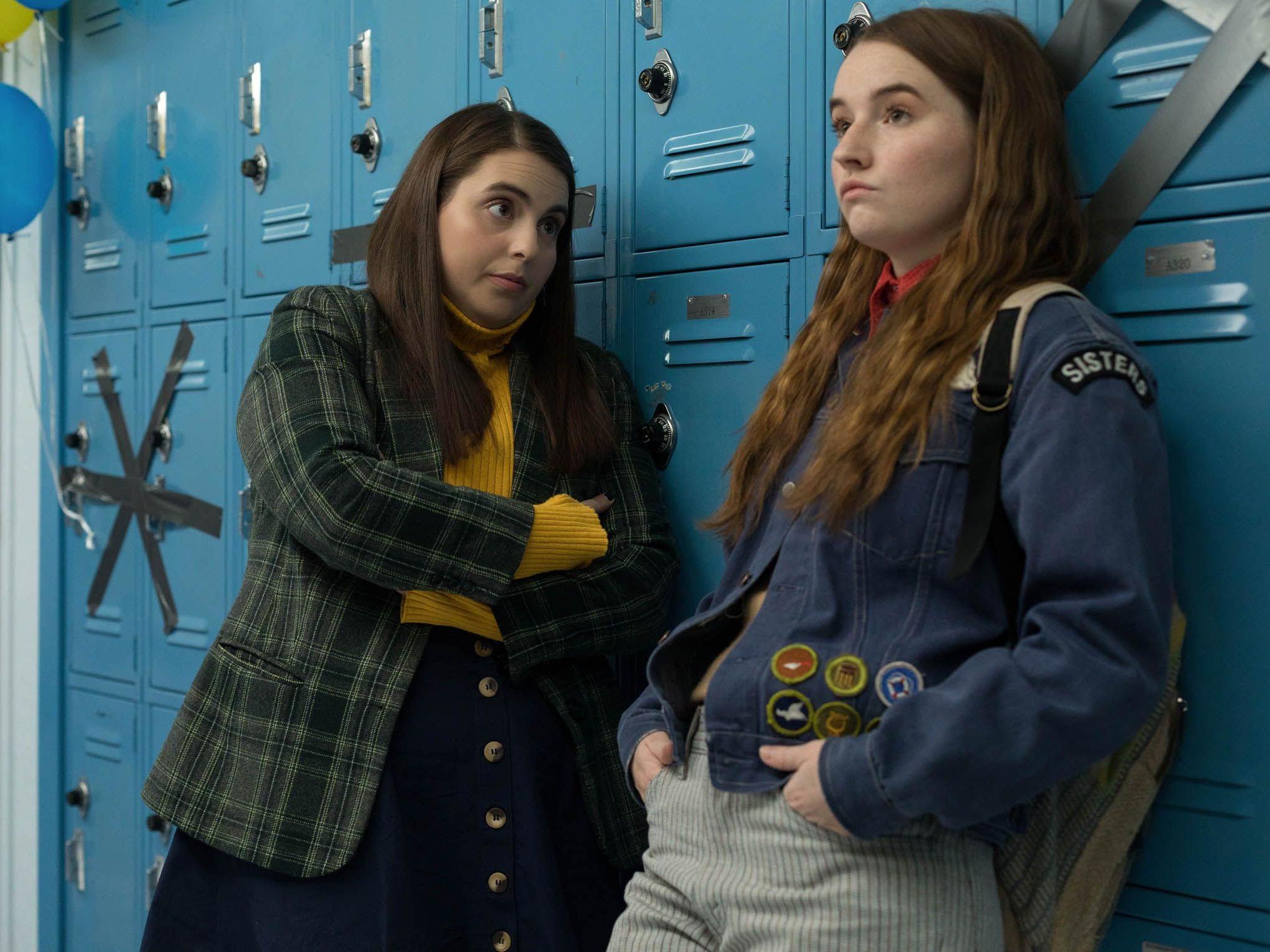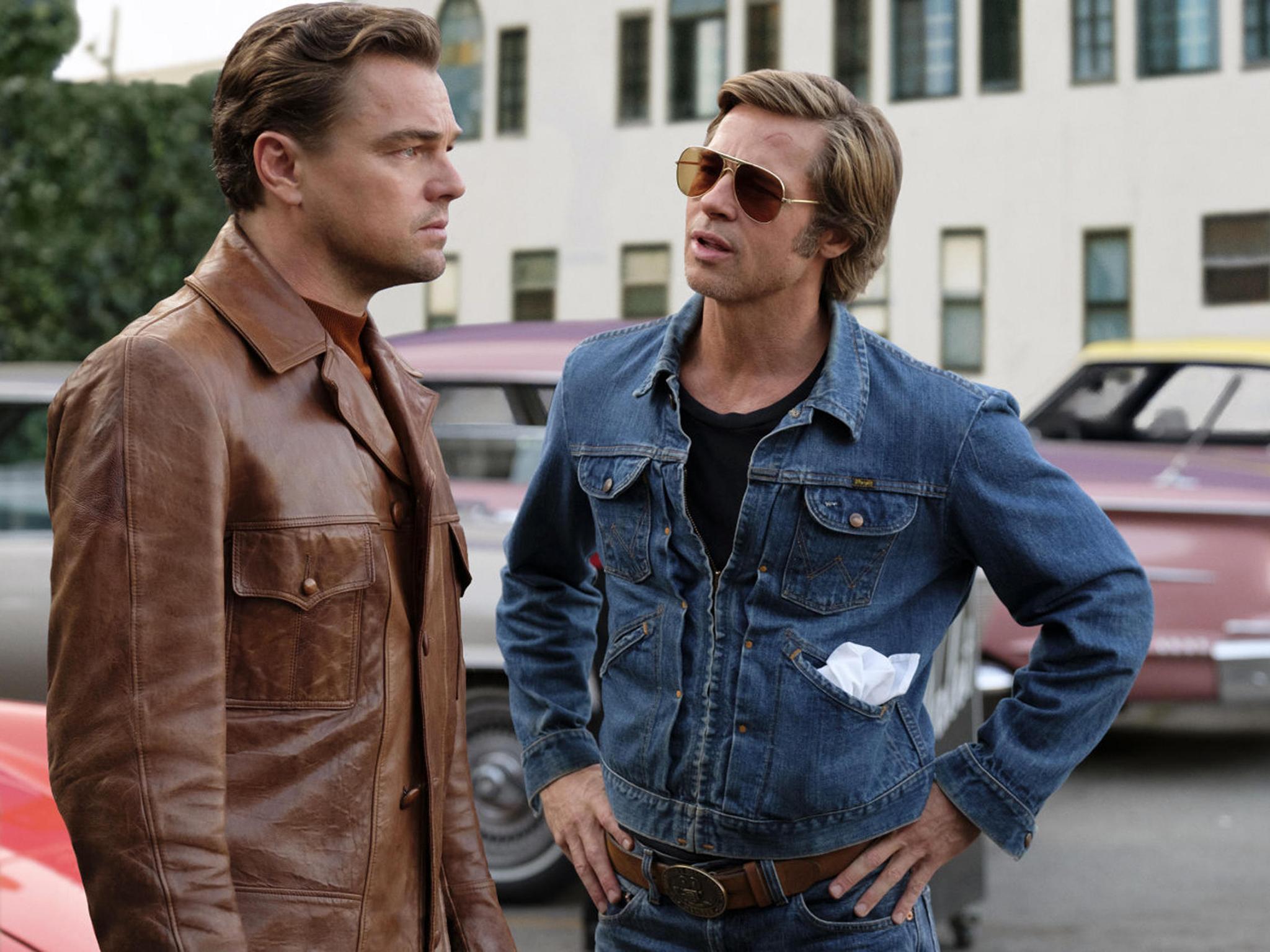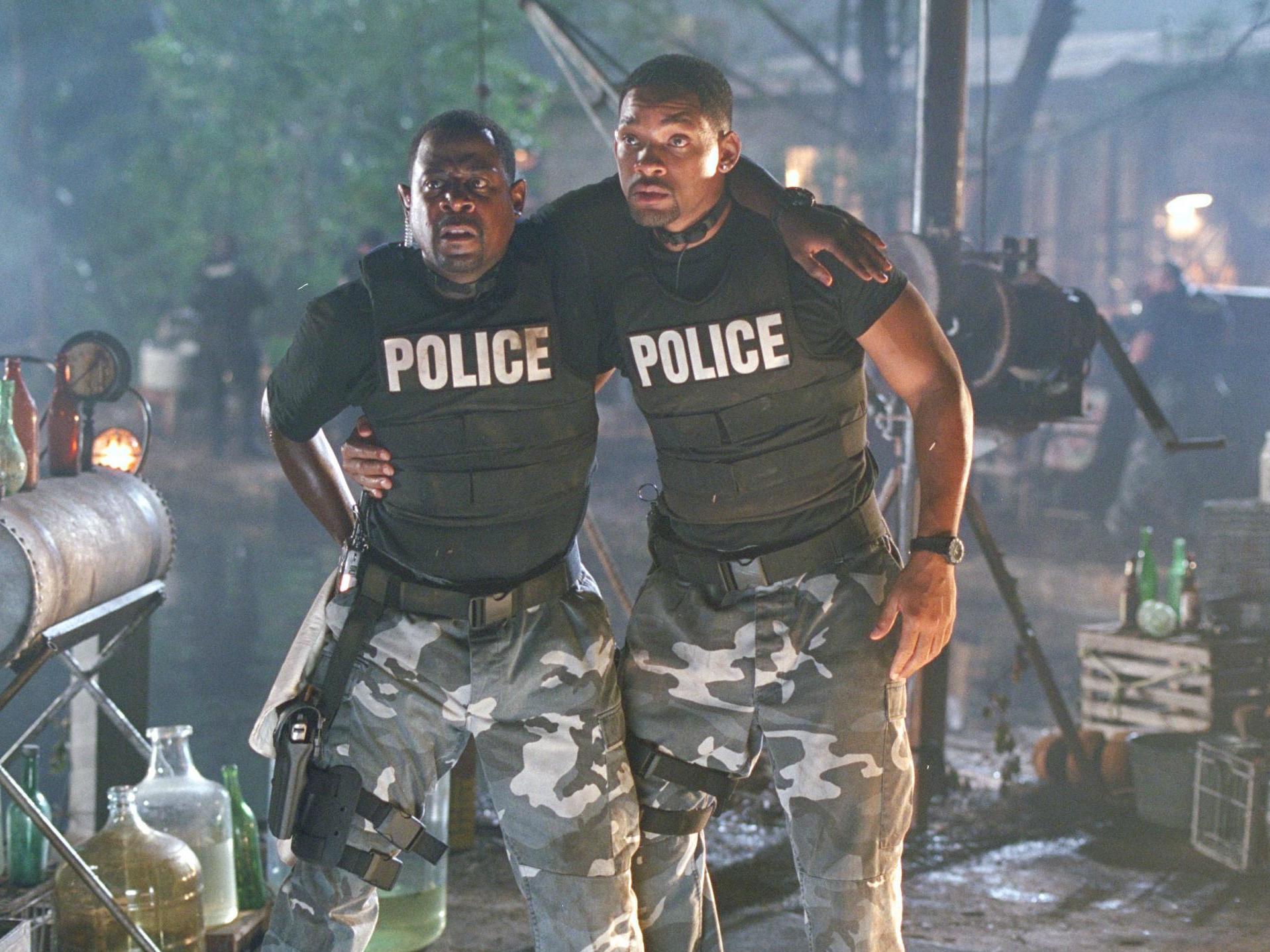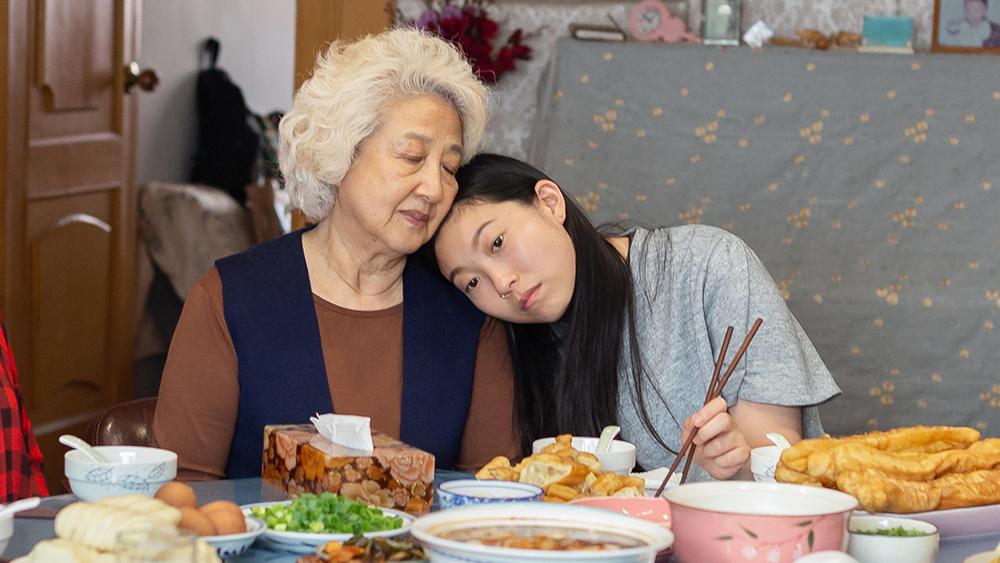Friendship, not love, is at the heart of the reimagined romcom
Hollywood is starting to take into account audience desire to see platonic love represented just as powerfully as romance, writes Beandrea July

Your support helps us to tell the story
From reproductive rights to climate change to Big Tech, The Independent is on the ground when the story is developing. Whether it's investigating the financials of Elon Musk's pro-Trump PAC or producing our latest documentary, 'The A Word', which shines a light on the American women fighting for reproductive rights, we know how important it is to parse out the facts from the messaging.
At such a critical moment in US history, we need reporters on the ground. Your donation allows us to keep sending journalists to speak to both sides of the story.
The Independent is trusted by Americans across the entire political spectrum. And unlike many other quality news outlets, we choose not to lock Americans out of our reporting and analysis with paywalls. We believe quality journalism should be available to everyone, paid for by those who can afford it.
Your support makes all the difference.When “Unchained Melody”, also known as the music from the pottery wheel scene in Ghost, shows up in a movie, it’s clearly meant to evoke romance.
In the teen high school comedy Booksmart, a bubblegum-pop cover plays when Molly takes her bestie, Amy, to the airport to leave for a gap year. Having a crush is still part of the movie’s angsty teen equation, but the song choice signals something new: that deep friendship isn’t a fallback but a relationship as important as romance. It’s a recognition that feels long overdue.
According to the Census Bureau, the number of unmarried Americans aged 18 and older has risen to 45 per cent, meaning there are more single people now than ever before. And more American adults today are valuing close friendships and careers over marriage.
Some of this summer’s most talked-about films, like Olivia Wilde’s Booksmart, are starting to catch up to the reality of these demographic shifts, knocking romantic fulfilment down from its pedestal and exploring the richness of platonic pairings. Big-budget studio movies like Once Upon a Time … in Hollywood and indies like The Farewell hinge on the close bonds of their main characters, and have performed well at the box office despite the absence of a dominant romantic storyline.
Well, there is a romance in Once Upon a Time, but it feels like an afterthought. The chemistry-deficient marriage between actor Rick Dalton (Leonardo DiCaprio) and an Italian movie star emerges during the last 30 minutes of the movie, perhaps to heighten the tension of the final fight scene and provide some not-too-subtle proof that Rick Dalton is as heterosexual as they come. While there’s sexual tension between Cliff Booth (Brad Pitt) and one of Charles Manson’s devotees (Margaret Qualley), the suave moccasin-wearing Cliff rebuffs her without hesitation. The tender moments of friendship between Rick and Cliff are easy to miss in a movie doused in Tarantino’s signature bravado.
Rick, a self-loathing actor with an alcohol problem, describes Cliff as “more than a brother and a little less than a wife” and he affectionately pats Cliff on the shoulder when they say goodbye. Rick doesn’t have the hypermasculine swagger you’d expect from a leading man in the 1960s, though. And despite their staunchly masculine roles in Hollywood – as the heavy and the stuntman “you can do anything to” – neither character pigeonholes himself into a stereotypical kind of manhood. In their first scene together, Rick actually cries on Cliff’s shoulder about the state of his career after a meeting with his agent. Cliff tells him to stop crying “in front of the Mexicans”, but he consoles him too.

Referring to the valet drivers this way, and barely showing their faces on screen, is just one example of how the film is often stubbornly tone-deaf and reduces people of colour to background noise. So while Tarantino veers away from expected masculine stereotypes, he largely fails to apply this same inventiveness to any other characters who aren’t a white man – or a dog.
It’s clear that love stories that aren’t romantic can be as cathartic on screen as dramatic love affairs. Acknowledging that truth might just be the start of a romcom refresh
Men in general, and straight white men in particular, often lack intimate friendships with other men, according to a growing body of research. In Joe Talbot’s The Last Black Man in San Francisco, we see quite the opposite with platonic soul mates Jimmie (played by Jimmie Fails) and Montgomery (Jonathan Majors). By laying claim to a foreclosed house that Jimmie says has been in his family for generations, they try to remain in their devastatingly gentrified hometown and they have no problem expressing affection and care for one another along the way.

Bromances from the 1990s heyday of black cinema were mostly buddy comedies (Friday, Bad Boys) or dramas that revolved around a woman (The Wood, The Best Man). But Talbot and his co-writer, Rob Richert, are comfortable letting Jimmie and Mont’s friendship form the emotional bones of the film, providing neither man with even a hint of a romantic storyline. Given the history of hypersexualizing black men in cinema, this signals new territory: finally a movie that gives its black male characters a wide open space to be themselves.
Then there’s Late Night, directed by Nisha Ganatra, about deep friendship in the workplace. It’s the story of how two opposites eventually become work wives. Katherine Newberry (Emma Thompson) is a harsh-tongued late night television host facing cancellation; the new writer, Molly Patel (Mindy Kaling, who also wrote the script), is charged with injecting some life into the show to save it.
The journey of their boss-employee relationship is bumpy in all the familiar romcom ways: they don’t hit it off at first, until they do. (Molly pitches an edgy joke about reproductive rights that Katherine likes.) Something breaks them apart: Katherine coldly fires Molly when she refuses to stay late for the umpteenth night in a row. After time apart, they reunite and both end up in a better place as a result: they revive Katherine’s show thanks to a utopian vision of feminist inclusivity in the writers’ room. Late Night is ultimately a tale of mutual mentorship that feels like the platonic equivalent of falling in love.

In writer-director Lulu Wang’s The Farewell, a granddaughter, Billi, runs to the hospital to prevent her grandmother from learning the truth about her terminal cancer. In a romcom, this would be instantly recognizable as the set piece where one character frantically runs to an airport to risk it all for love.
The power of a grandmother’s love has probably never been as thoughtfully rendered on the big screen as in this family drama starring Awkwafina as Billi and Zhao Shuzhen as her grandmother, Nai Nai. To spare Nai Nai the pain of knowing she has only a few months to live, her family concocts a wedding in her Chinese hometown. This allows the family to say goodbye one last time without giving Nai Nai a reason to suspect anything.
Scenes of this Chinese and Chinese American family eating, laughing, arguing and lovingly maintaining this charade fill frame after frame, providing visual delight. For Billi, raised in America, Nai Nai is the person who most embodies her tenuous link to China and who, unlike her parents, truly gets her. Naturally Nai Nai is a doting grandmother (noting affectionately that Billi’s “little round butt hasn’t changed at all”), but she also functions as a chatty girlfriend. In a beautiful two-shot close-up, Nai Nai gossips with Billi about her grandson’s sheepish bride: “That girl is not affectionate. Nothing like our family,” she says, adding, “makes me wonder what they do in the bedroom.”
As the New York Times critic Wesley Morris wrote, the “romantic comedy is the only genre committed to letting relatively ordinary people – no capes, no spaceships, no infinite sequels – figure out how to deal meaningfully with another human being.” Stories about deep friendship have a clear place in the genre. Maybe the romcom isn’t dead, just stale. It’s clear that love stories that aren’t romantic can be as cathartic on screen as dramatic love affairs. Acknowledging that truth might just be the start of a romcom refresh.
© New York Times
Join our commenting forum
Join thought-provoking conversations, follow other Independent readers and see their replies
Comments